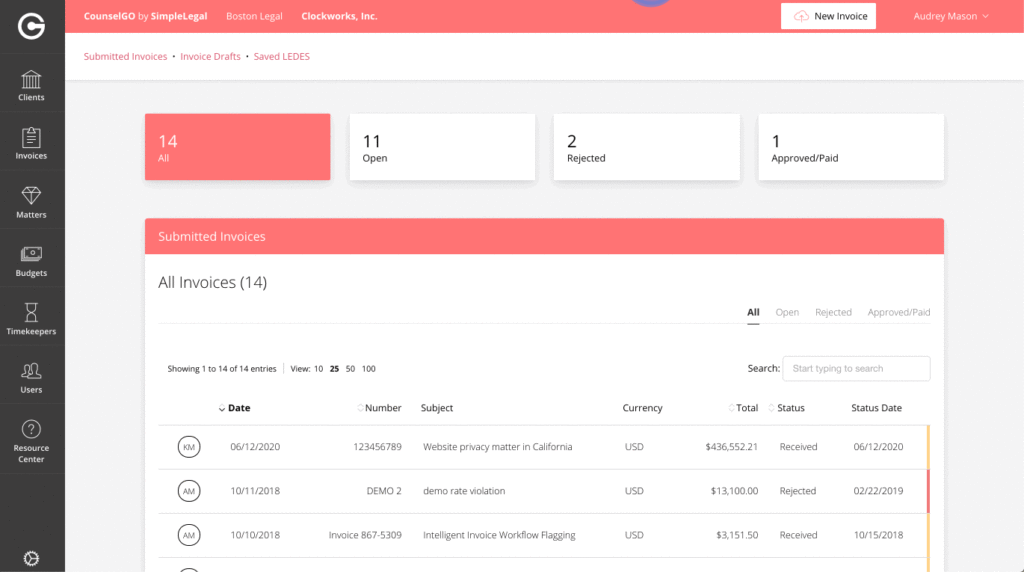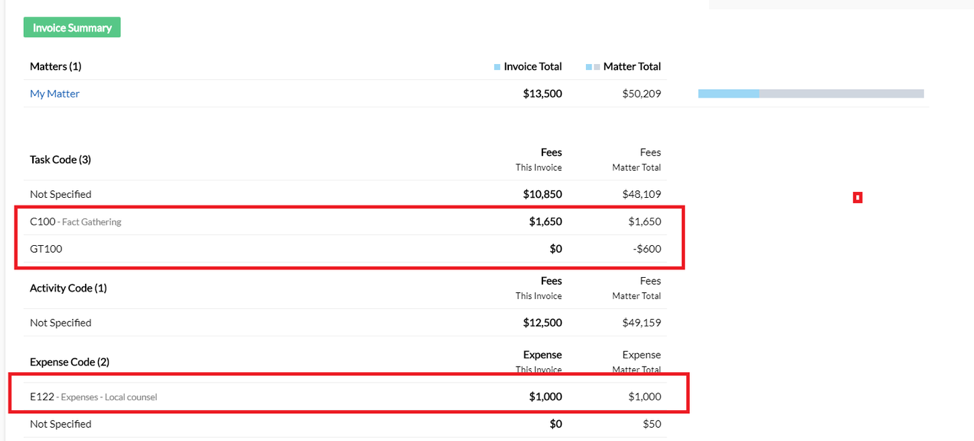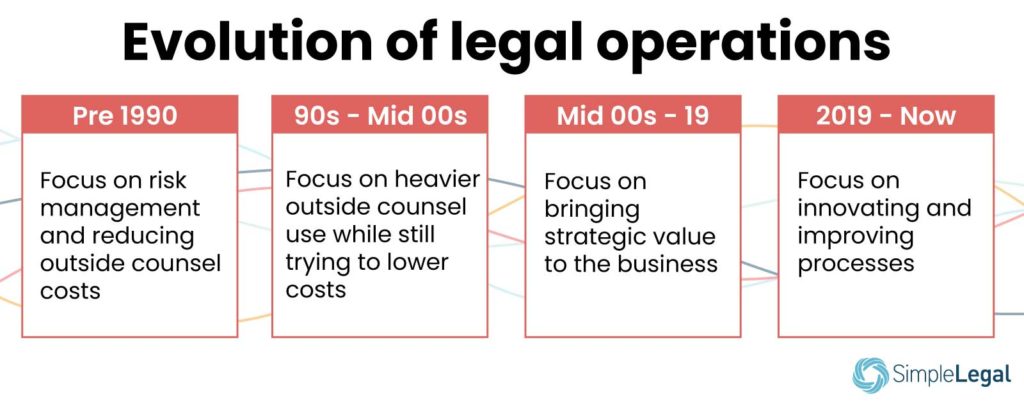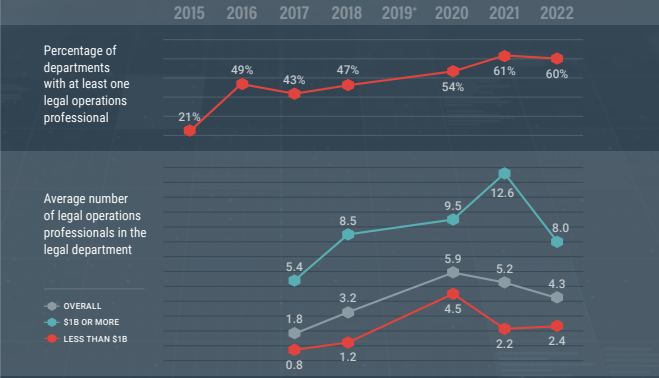
By 2023, 164 million people in the U.S. will listen to podcasts every month, according to Activate Consulting. That’s a staggering 412.5% increase since 2013.
Not only are podcasts a popular form of entertainment, they’re also an incredibly popular way to learn. Users learn anywhere at any time, and podcast episodes are much shorter than traditional mediums like textbooks. This is great for people with busy schedules who want to learn about complex topics — a perfect match for those in the legal industry.
From current court cases to diversity in law, there’s a topic for everyone. But it can be tough finding the “right” show amid the hundreds of thousands out there.
Skip the hassle of searching Spotify or Apple Podcasts and easily find a new educational favorite on our list of 29 of the best legal podcasts. These top legal podcasts combine great research, expert input, and engaging storytelling to help you expand your industry knowledge while making the most of your time. Happy listening!
Best legal podcasts for technology and innovation
At SimpleLegal, it goes without saying that we’re obsessed with all things legal tech. These podcasts are our go-to’s for discussions on the latest tools and advancements and how cutting-edge legal software will continue to transform the industry.
1. TECHNICALLY LEGAL
If you’re like us and love nerding out over legal technology, Technically Legal is the podcast for you. Each episode features a prominent leader in the legal industry chatting with host Chad Main, attorney and founder of alternative legal services provider Percipient, about their relationship with legal tech and best practices for implementation. Our very own co-founder and advisor, Nathan Wenzel, was even featured on one episode.
2. LAWNEXT
This podcast from lawyer and journalist Bob Ambrogi centers on the latest industry changes, many of which are driven by or include legal technology. Ambrogi’s interviewing skills shine as he holds conversations with innovative legal software CEOs, GCs, and other prominent industry figures.
3. LEGAL TOOLKIT
This Legal Talk Network podcast offers great advice for those looking to get into the management side of law. Host Jared Correia is the CEO of Red Cave Consulting, which offers law firm business management consulting and technology services. Each month, Correia introduces listeners to top lawyers and legal professionals who discuss the tools, services, and programs they use to improve their practices. You can catch SimpleLegal’s co-founder Nathan Wenzel on an episode about legal process management for in-house counsel.
4. LEGAL TECH MATTERS
The title of this podcast says it all. What’s unique about this tech-centric show is that there are 5 hosts, each with their own different legal background and approach to interviewing. This variety of personalities makes for extra-compelling episodes that cover everything from using software in dispute resolutions to pro bono programs.
Best legal news and current legal events podcasts
In the ever-changing world of law, keeping up with landmark rulings and legal debates is crucial. Tune into these podcasts to hear the latest news from courtrooms, legal newspapers, and law classrooms across the country.
5. LAW360’S PRO SAY
Think of Pro Say as the CliffsNotes of legal news. Every week, this Law 360 podcast shares a recap of what happened in the legal world in the past seven days. The two hosts — legal journalists Amber McKinney and Alex Lawson — chat about big stories as well as a few that didn’t make the headlines. With the help of their expert guests, they break down legalese and present stories in a clear and accessible format.
6. LAWYER 2 LAWYER
This award-winning Legal Talk Network podcast has been going strong since 2005, making it one of the longest-running online podcasts. It remains a trusted resource for current events in the legal industry and discussions of recent rulings. Each episode is hosted by criminal defense lawyer J. Craig Williams and features many industry experts as guests. Get ready for insightful debates about hot topics from courts across the United States.
7. BLOOMBERG LAW
Emmy Award-winning journalist June Grasso hosts this podcast, which analyzes legal issues and major cases in the news. While the show doesn’t release episodes on a set schedule, you can usually count on a handful of releases each month. The short episodes examine different areas of law through interviews with legal scholars and practicing attorneys.
Best legal thought leadership podcasts
These shows feature thought-provoking conversations on ethics, politics, and the future of law. The discussions bring multiple perspectives to light, giving you the opportunity to reflect on issues from new points of view.
8. EVOLVE THE LAW
Above the Law manages one of the most popular legal blogs, so it’s no surprise that their podcast, Evolve the Law, is top-notch as well. Attorney Ian Connett, founder of Quantum Jurist, interviews a prominent legal figure in each episode to discuss industry trends and the future of law.
9. LAWYERS GONE ETHICAL
While this podcast ended in 2020, we still remain fans of its extensive library of episodes dedicated to deep dives on the evolution of legal ethics. State Bar defense attorney Megan Zavieh and her guests tackled key questions and points surrounding the tricky ethics of attorneys and legal professionals using social media, protecting data, legal marketing, and more.
10. THINKING LIKE A LAWYER
Above the Law’s Kathryn Rubino and Joe Patrice combine their experiences as journalists and litigators on this great podcast that takes a unique approach to legal discussions. Together, the hosts talk through an everyday experience and reexamine it through the eyes of a lawyer. If you’ve ever wanted to dig into the legal side of an impeachment proceeding or the accuracy of how attorneys are portrayed on TV, this show’s for you.
Best legal diversity, equity, and inclusion podcasts
Many industries are focused on diversity, equity, and inclusion (DE&I) in the workplace, including legal, which has historically struggled in these areas. These podcasts will help you understand the barriers to DE&I and how we can work together to eliminate them.
11. LGBT BAR NY
You can’t beat this podcast when it comes to legal perspectives on LGBTQIA+ issues. LGBT Bar of NY executive director Eric Lesh and New York Law School professor Art Leonard co-host monthly episodes. The duo tackles relevant topics like the legality of bakeries refusing to bake for gay weddings, adoption agencies discriminating against same-sex couples, and more.
12. TODAY’S WORKPLACE
Hosted by attorney Barbara Johnson and human resources executive and DE&I strategist Belinda Reed Shannon, this award-winning podcast covers diversity topics as well as other issues connected to employment law. From systemic discrimination cases to creating effective DE&I programs, the duo and their thought leader guests have honest, compelling conversations that keep us coming back for more.
13. HEELS OF JUSTICE
Sarita Venkat, head of IP Transactions Worldwide at Apple, and Katherine Minarik, Vice President of Legal and Deputy General Counsel at Coinbase, co-hosted this women-focused legal podcast. While the show ended in 2021, we still re-listen to the interviews with trailblazing women attorneys who made waves in politics, courtrooms, and boardrooms.
14. THE JABOT
An offshoot of legal blog Above the Law, this podcast focuses on stories of women, people of color, LGBTQIA, and other marginalized groups in the legal industry. Named for the collar Ruth Bader Ginsberg wore on the bench, the show wants to serve as “a reminder that, even when we aren’t winning, we’re still a powerful force to be reckoned with.”
15. DIVERSITY EVER AFTER
Baker Donelson’s DE&I podcast does an excellent job of examining diversity from all different angles, from discussions on how a lack of DE&I impacts mental health to the history of code-switching. And most of the episodes are under 30 minutes, making it a binge-worthy favorite.
16. DIMENSIONS OF DIVERSITY
Hosted by Buchanan Ingersoll & Rooney’s Chief Diversity Officer, Lloyd Freeman, this podcast is an especially great listen for aspiring legal leaders. Many of Freeman’s prominent guests include C-suite executives and senior attorneys who share their practical advice and insights on all things DE&I in the legal industry. All their episodes captivate our attention, but we especially recommend the conversation on what white male allies can do to boost DE&I.
Best law school and professional development podcasts
Whether you’re fresh out of law school or an experienced attorney looking to build your career, the expert hosts and guests on these podcasts can help you meet your goals.
17. ABA LAW STUDENT PODCAST
This podcast from the American Bar Association Law Student Division is a must-listen for all current law students and recent grads. This show covers everything from current court cases to practical advice on using your degree. There’s also a solid roster of inspiring interviewees who share their unique professional journeys in law, whether at a firm, in-house, or elsewhere.
18. LAWYERIST
On the Lawyerist podcast, hosts Stephanie Everett and Jennifer Whigham invite a successful lawyer to talk about the future of practicing law. Weekly podcast episodes cover a range of topics, such as law school, entrepreneurship, marketing, and business models — including models suitable for small firms and solo attorneys — in the legal industry.
19. UN-BILLABLE HOUR
Experienced attorney and law firm management professional Christopher T. Anderson spends one (un-billable) hour each month giving advice about managing a law firm. He covers topics such as finding your niche in the legal industry, leveraging AI, and hiring top talent. This one’s a great listen for aspiring managing partners and CLOs.
20. ASKED AND ANSWERED
This American Bar Association Journal podcast discusses topics relevant to lawyers both in and out of the office. Host Stephanie Francis Ward interviews top-of-the-industry guests to learn about their careers as well as professional and personal obstacles they’ve overcome.
21. NEW SOLO
If you’re interested in going solo or improving your solo practice, be sure to subscribe to this show. Legal consultant Adriana Linares hosts conversations about legal entrepreneurship. Each month, Linares invites a guest to talk about networking, helpful legal technology, and law practice management.
22. LADIES WHO LAW SCHOOL
Recent law school grads Haylie Davis and Samantha Lemke describe their podcast as perfect for “everyone who ever thought ‘hmmm, maybe law school seems fun.’” This duo shares their own law school experiences with humor and heart, helping other current and prospective students navigate their journey. We love their down-to-earth personalities and their colorful line of merchandise.
23. LAW SCHOOL TOOLBOX
This legal podcast takes an entertaining approach to conversations about law school, legal careers, and life. Each week, Alison Monahan and Lee Burgess — both law school and bar exam experts — share practical advice to help students navigate academic matters, careers, and more.
24. LAWYER STORIES
A spinoff of the Instagram account with the same name, this upbeat and motivational podcast features different legal guests sharing their professional and personal journeys. Tune in to hear about all different forms of what success in law looks like.
Best legal pop culture analysis podcasts
These creative and compelling shows examine noteworthy legal cases and topics in both real-world and fictional settings. Ready, set, binge.
25. COURT JUNKIE
As the name implies, this podcast is geared toward anyone who loves digging into the criminal law aspects of true crime. Founder and host Jillian Jalali highlights injustices and issues within the U.S. judicial system by reviewing court documents, attending trials, and interviewing key people involved in cases.
26. THE LEGAL GEEKS
Self-proclaimed geeks and licensed e-discovery attorneys Jessica Mederson and Joshua Gilliland host this innovative podcast examining superhero and sci-fi favorites through a legal lens. Grab your popcorn and listen to fun and thought-provoking episodes like “Legal Analysis of Dr. Strange and the Multiverse of Madness” and “Did Ultraman Commit a War Crime?”
27. LEGAL WARS
This riveting show dives deep into some of the most famous U.S. court cases. Author, actor, entrepreneur, and Harvard Law School graduate Hill Harper hosts this well-researched and entertaining law podcast. In each episode, Harper works through court transcripts and interviews in real-time, making you feel as if you’re listening from the jury box.
Bonus: Notable mentions
These high-quality shows may not fall into one of our previous categories, but we just couldn’t leave them off our list of the best podcasts.
28. AMICUS
Slate writer Dahlia Lithwick hosts this legal podcast that centers on the 9 Supreme Court justices. Lithwick highlights the extreme influence these 9 individuals have over how U.S. laws are written, interpreted, and enforced. Episodes often feature politicians, professors, and legal professionals, who provide expert insight into Supreme Court issues.
29. HANDEL ON THE LAW
Witty and humorous attorney Bill Handel has hosted this radio show-turned-podcast since 1985. It’s stayed popular because of Handel’s bold, funny, and helpful advice to callers on the weekly show. It’s a great way to learn another lawyer’s perspective on legal questions — and to have a good laugh.
Expand your education with the SimpleLegal Learning Center
After you get your fill of legal podcasts, be sure to check out our lists of the top legal blogs and top law books. And if you’re looking to learn more on a specific topic, visit our free Learning Center for educational blog posts, whitepapers, and videos on all things corporate legal. Subscribe and get the latest updates delivered right to your inbox!








